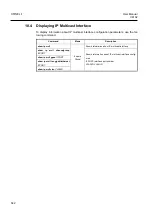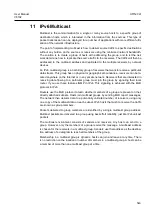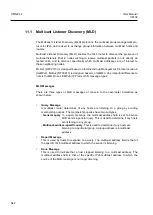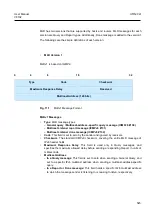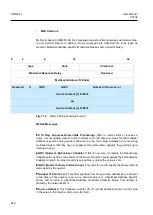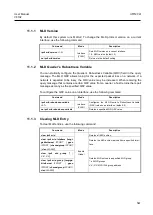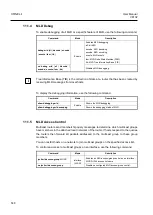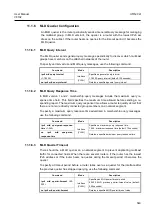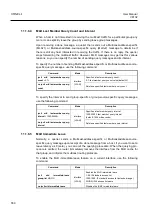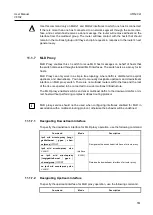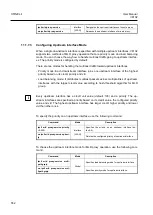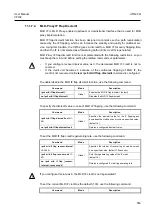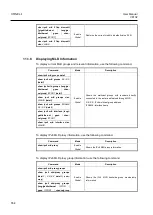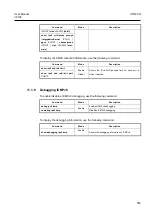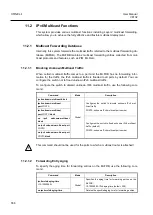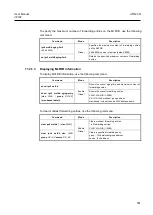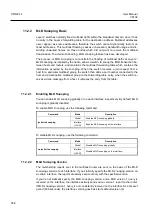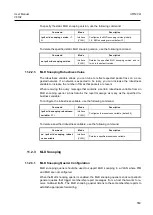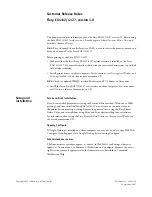
UMN:CLI
User Manual
V8102
544
11.1
Multicast Listener Discovery (MLD)
The Multicast Listener Discovery (MLD) protocol is the multicast group management pro-
tocol for IPv6 and is used to exchange group information between multicast hosts and
routers.
Multicast Listener Discovery (MLD) enables the IPv6 router to discover the presence of
multicast listeners (that is, nodes wishing to receive multicast packets) on its directly at-
tached links, and to discover specifically which multicast addresses are of interest to
those neighboring nodes.
MLDv1 (RFC2710) is designed based on Internet Group Management Protocol version 2
(IGMPv2). MLDv2 (RFC3810) is designed based on IGMPv3. One important difference to
note is that MLD uses ICMPv6 (IP Protocol 58) message types.
MLD Messages
There are three types of MLD messages of concern to the host-router interaction as
shown below:
•
Query Message
A multicast router determines of any hosts are listening to a group by sending
membership queries. The membership queries have two subtypes.
-
General query
: In a query message, the multicast address field is set to 0 when
MLD sends a general query. This is used to determine if any hosts
are listening to any group.
-
Multicast-address-specific query
: This is used to determine if any hosts are
listening to a particular group. A group address is a multicast
address.
•
Report Message
This is used by hosts to response to a query. The multicast address field is that of
the specific IPv6 multicast address to which the sender is listening.
•
Done Message
This is used to indicate that a host stopped listening to a multicast address. The
multicast address field is that of the specific IPv6 multicast address to which the
source of the MLD message is no longer listening.













